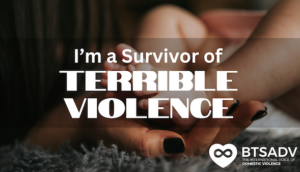What Is Being Proposed?
Throughout most of 2021, residents in Wisconsin have been pushing for a “Purple Alert.” So many of us are familiar with Amber and Silver Alerts for missing children and senior citizens. Purple Alerts would add to this, by identifying adults who are missing in a presumed domestic violence situation.
It is not unprecedented for Wisconsin to add more demographic categories to the state’s alert services. Following the death of a forty-five-year-old veteran named Corey Adams was found dead in 2017, the Badger State instituted a “Green Alert” for veterans. It was the first such alert in the United States.Adams was diagnosed with PTSD, so he was considered a specific risk.
In Milwaukee, the biggest city in Wisconsin, the Milwaukee Common Counsel and Milwaukee County Board have both voted to support the proposed legislation; asking the legislature to take it up in session. Combined with the huge public-pressure, and the willingness to act on a Green Alert, it looks as if momentum is growing for this legislation.
Who Is Fighting for It?
Audrey “Tutu” Scott was deemed to not be a “critically missing person,” when her mother couldn’t get a hold of her after July 3 rd , 2017. Carry Scott-Haney was worried about her daughter Audrey. She did not trust the man Audrey was dating, and her motherly-concern was only made worse when she noticed her daughter was without important medication. The police wouldn’t share her picture with media outlets, while Audrey was missing.
According to Scott-Haney’s words to WTMJ-TV in Milwaukee, “I knew Audrey was missing and they (police) tell me, ‘well, she’s an adult, she can leave, she can take a break.’”
Unlike the suggestions of the police, Audrey wasn’t ignoring her mother to “take a break.” Two months after she disappeared, Audrey’s body was found in a wooded area off a Wisconsin highway. The boyfriend that Carry believed was untrustworthy has since been convicted of Audrey’s murder.
Understandably, Scott-Haney doesn’t want the police to be the only ones involved in the search for victims of domestic violence who are missing. She told the Milwaukee Journal Sentinel, “I want the public to be able to assist the police in these investigations.”
As a Person of Colour, Scott-Haney was always fighting an uphill battle. When it was the blond-haired Gabby Petito who was missing earlier this year, it made national headlines. If the media isn’t going to rush to help find missing Women of Colour, there needs to be some way to shine a spotlight on these underserved communities.
In 2021, Scott-Haney is now one of the leading advocates for a Purple Alert. She has even started a Change.org petition that was just shy of its intended goal in late-December.
The mother-turned-advocate believes that, “the Purple Alert will help other families have their children or their loved ones returned to them alive.”
Milwaukee County Supervisor Sequanna Taylor supports the Purple Alert, and is herself a survivor of domestic violence. She has said, “When we think about the AMBER Alert, the Silver Alert, these are alerts we put into the community as an emergency to let people know that something is wrong. However, with domestic violence, we had no such thing.”
Why Are Some Domestic Violence Advocates Weary of the Purple Alert?
Marsy’s Law, like the Purple Alert, was pushed by victim’s rights advocates, and was signed into law in 2020. This provision is in place to drastically reduce the amount of information that can be made public about victims of crime. There is no way to have a functional Purple Alert, without making the identity of victims and potential victims public.
Jenna Gormal is the policy director at the statewide organization, End Domestic Violence Wisconsin. She told the Milwaukee Journal Sentinel, “For the Purple Alert, I have no idea how those two systems can exist in tandem.”
As much as it can be torture for anyone who knows or even loves a victim of domestic violence, it is also important to protect the rights of that person to detach from us, as well. Many victims may flee an abusive situation, and not want their loved ones to know they are in a shelter. A woman may escape an abusive husband, for example, and be afraid of information to friends and family members ending up making its way back to her abuser. As allies, we sometimes have to come to terms with the fact that our
comfort, and our desire to know our loved ones are safe may interfere with the desires of the victim.
Those are just the arguments against the Purple Alert that assume the call is being made by someone with good intentions. Gormal worries there would be situations, “where an abuser might report them as missing and perpetuate those stalking and control behaviors.”
Will the Current Laws Protect Victims?
The Purple Alert may or may not be the right answer, but the fact remains that society is not doing enough to protect victims. Too often, with the lack of support from the police, families are forced to work on their own to find their missing loved ones. There are many examples of this, especially involving Women of Colour.
Armoni Chambers is also from Milwaukee, and she went missing when she was sixteen. She was groomed on social media, and for five weeks suffered horrible abuse and trauma in Chicago. The family wasn’t able to get any attention from local media or the Milwaukee Police.
It wasn’t until after they took matters into their own hands, and reached out to people with large social media followings. The same device that partially led to this torture for Armoni Chambers, also ended up being the outlet that saved her. She was reunited with her family.
Bonnie Bruno is Armoni’s mother, and believes the Milwaukee Police, “really dropped the ball on this one.”
How Do We Fix It?
It is very possible that the Purple Alert will become the law of the land in Wisconsin. That may create unintended consequences, much like Marsy’s Law created some unintended consequences in regards to helping find missing women. Hopefully, any legislation that is passed with be written with the assistance of allies with knowledge of domestic violence, child abuse, and sexual-assault.
At least the families of these victims are speaking out for things they believe will help. Carry Scott-Haney and Bonnie Bruno likely wouldn’t have been rallying for change had they not been confronted with these horrible situations. Even if they don’t have the legal knowledge to write the perfect legislation, they are bringing a passion to the issue. They are making noise. So much more needs to be done to help missing women, and these two have taken tragedies that could have left them on the couch for years, and they are using them as motivation to make a difference.
Sources for the blog can be found at the following links:
https://www.jsonline.com/story/news/crime/2021/12/22/purple-alert-proposed-find-missing-
domestic-violence-victims-women-milwaukee-audrey-scott/6389506001/
https://www.tmj4.com/news/local-news/purple-alert-local-leaders-activists-push-for-wisconsin-
legislature-to-create-alert-system-for-missing-domestic-violence-survivors
https://www.doj.state.wi.us/news-releases/office-open-government-advisory-marsy%E2%80%99s-law-
and-public-records
https://www.jsonline.com/story/news/crime/2017/08/31/remains-found-racine-county-identified-
missing-milwaukee-woman/621279001/
https://www.jsonline.com/story/news/crime/2018/07/26/milwaukee-missing-persons-families-rely-
social-media-not-police/796516002/
https://www.change.org/p/wisconsin-s-state-legislators-missing-domestic-violence-victims-matter










